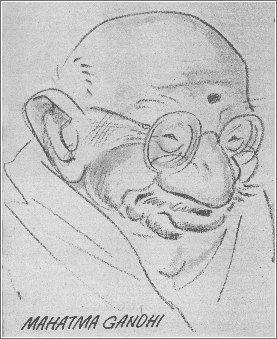What Makes Great Business Leaders Tick?
By Ashok Bhatia (2014)
I have had the privilege of observing several business leaders at close quarters. Most of them are professionals who have become true blue leaders purely by merit. Some of them are owners and entrepreneurs who have built up a business empire by sheer innovation, risk appetite, organizational ability and hard work.
Here is a listing of some unique traits and habits which I believe make them exceptionally great leaders.
1. A Four-Dimensional Thought Process
Any issue being faced by great leaders is viewed through a four-dimensional lens. They possess the unique capacity to be able to see not only the spread, the reach and the depth of the problem at hand, but also its likely evolution over a period of time. They have good intuitive faculties.
Being both a visionary and a thorough person is important. All the four dimensions of a problem are intricately entwined. A great leader’s vision would be rooted in something big and motivational; it would also be backed by a detailed implementation plan, a contingency plan, and, of course, loads of hard work.
In other words, their vision and broad mental sweeps are matched by finer details. Their attention to detail could be annoying at times. Send them a note/mail with a typo and you are sure to earn a gentle reprimand. Attend a client meeting with them and your pencil color and tie pattern had better match that of the team!
Opening a sealed envelope and double-checking the figures and totals in a statement are habits they tend to have. Ensuring that an important letter is put in an envelope with the correct name, title and address of the recipient is another dimension of their spirit of perfectionism.
2. Good Speakers but Better Listeners and Readers
Leaders who charm us would perhaps never be at a loss for words. They would conduct meetings with great finesse and nudge the discussion in a productive manner. But they would also know how to listen. Don’t be surprised to find them walking around with small cards to take notes when people talk.
Send them a well-drafted mail on a matter of critical importance and we can be rest assured it would be read with all the attention it deserves. A well thought-out response would invariably follow, if not a phone call or an invitation for a personal meeting.
For matters which are of a strategic nature, or involve a policy decision, they are never in a hurry to hit the send button.
Strong leaders like to hear alternate viewpoints. They have neither time nor patience for sycophants. Irrespective of the time or venue, they are always willing to listen. Of course, the final call on any issue is their own.
3. A Hardened Love for People
They just love people, though it does not mean they cannot be hard on them. Understanding people and their problems comes naturally to them. In most cases, it is empathy at work and not sympathy.
If there is a personal problem, they would go to great lengths to assist us in finding a solution. If a mistake gets repeated, we can be sure of their coming down like a ton of bricks on the real defaulter amongst us.
Great leaders are invariably fair when it comes to apportioning blame. The policy they follow is that of praising in public and rebuking in private. The focus is always on finding a solution and not on witch-hunting.
They would never select a wrong person for the organization. Interviews for new recruits would be detailed and exhaustive. An exhaustive background check of a successful applicant would be done before a formal offer is made. A meticulous induction program would be in place. They would elicit feedback at all stages of our progress through the company and intervene in matters of career advancement wherever necessary.
They would not shy away from fixing tough targets. Performance would be their primary consideration. They would neither delegate nor avoid meetings where a negative feedback has to be shared with an employee. A person found wanting on initiative has no place in their scheme of things.
Zero tolerance for a breach in values and ethics happens to be one of their prime qualities. A case of immoral conduct would get settled quickly and effectively. It would not matter if it involves either a great performer or someone who has been ‘loyal’ to the organization all along.
4. A Commitment is a Commitment
It is not easy to extract a commitment out of them. But once they commit to something, they would move heaven and earth to deliver on their promise.
Likewise, if we agree upon a target with them, we would do well to deliver on our promise. If we fail, the consequences could be disastrous for our career progression.
Each one has a unique follow-up system in place. Some have the habit of pulling out small scribbled notes from one of their pockets to check on the progress of tasks assigned and agreed upon. Some are sticklers for maintaining and updating their diaries – manual or otherwise. Once we appear on this follow-up radar of theirs, we would not find it easy to squiggle out of it till the time the task is indeed accomplished.
5. A Stronger Moral Compass
Great leaders live by example. They create a culture which is at once innovative and results-driven, entrepreneurial and collaborative, socially responsible and pragmatic. To them, their moral and spiritual compass is as important as their business and financial compass.
At the core of their moral compass is an intra-preneurial approach. They might be employees themselves, but their vision, actions, behavior and responses would be totally entrepreneurial. They would walk around behaving just like the true owners of the business they are meant to govern. Try to fall foul of them on their basic value system and you could be getting a pink slip earlier than you think.
Smart leaders are also aware that gender diversity facilitates better decision-making at all levels of the organization.
6. Straddling the Digital Divide
They have also perfected the art of balancing the digital world with their real world. They answer every email addressed to them. If they are part of the hapless ‘cc’ brigade, they do not hesitate to intervene if and when a multilateral dialogue on the mails becomes either unproductive or political in nature.
Somehow, they always find the time to communicate face-to-face. They strongly believe that if something is worth communicating, it is surely worth over-communicating.
We would not find them coming up with knee-jerk solutions to problems. Dispassionate at heart, they have somehow mastered the technique of always maintaining their equipoise, radiating positivity all around them.





Comments
Post a Comment